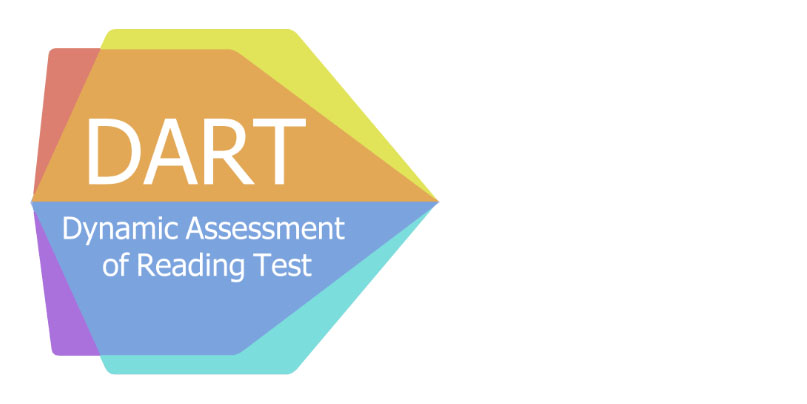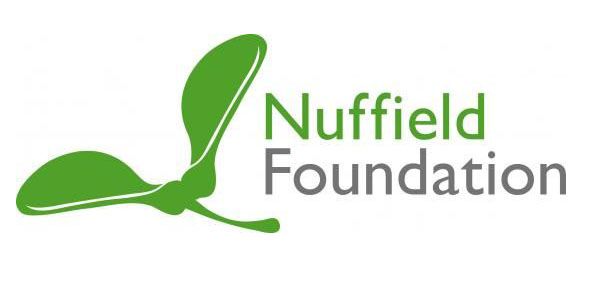Research project
The Dynamic Assessment of Reading Test (DART) Project
- Start date: 2018
- End date: 2021
- Value: £332,043
- Partners and collaborators: Nuffield Group
- Primary investigator: Dr Hannah Nash (Lecturer and Principal Investigator)
- Co-investigators: Dr Paula Clarke (Associate Professor and Co-Investigator) Dr Anna Weighall (Reader and Co-Investigator) Dr Chris Dixon (Research Fellow) Emily Oxley (Research Assistant)
- External co-investigators: Dr Anna Weighall (Sheffield Education), Dr Anna Gellert (Linguistics, University of Copenhagen)

Description
What’s the DART project about?
We know that 25% of children leave primary school without being able to read properly. If we can find out early which children might struggle to learn to read, schools can give them extra help, so they don’t fall behind.
At the DART project, we are looking at different ways to find out which children might be struggling with reading. We are measuring reading ability using dynamic assessments. A dynamic assessment measures a child’s learning potential, rather than what they already know. We think measuring a child’s potential to learn different skills needed for reading could be a better way to see which children might struggle. The dynamic assessments used in the DART project are learning games that are carried out on a computer.
We are looking at three different skills that are important for reading: decoding (learning letter sounds), sight-word learning (learning spelling patterns) and vocabulary (learning new words).
The DART project is funded by the Nuffield Foundation, see here for further information
Please see below for:
- Information for families and
- Information for schools.
Information for families
Why has my child been selected to take part in this project?
You child has been selected because your school has agreed to be part of the project. We are working with lots of different children from Reception, Year 3 and Year 4.
If you do not want your child to take part, we ask you to sign and return the DART information sheet to school. You are also free to withdraw your child from the project if you change your mind.
What will my child be doing?
Your child will work for a short period of time with a member of the project team outside of the classroom. They will take part in some fun language and reading tasks. All of the tasks are similar to activities children would normally be doing in school.
Children will work with one of the project team on two different days. On the first day, they will play a game on a computer where they learn either: symbols and sounds (in Reception); new words and their spellings (in Year 3); or new words and their meanings (in Year 4).
On the second day, they will they will take part in some activities about vocabulary and reading.
We will give information to your child’s school about how your child has done on the tasks. This will tell them more about your child’s reading level.
All members of the project team have lots of experience of working with children and have been fully DBS checked.
Information for schools
The DART project involves three ‘work packages’ looking at different areas of reading
- Decoding (Reception);
- Sight-word learning (Year 3); and
- Word learning (Year 4).
We are interested in these types of learning because they underpin different aspects of reading development at different stages: decoding for early reading, sight word learning for fluent reading and vocabulary for reading comprehension. There wouldn’t be any costs involved for the school. We will bring our own equipment and would just ask for some quiet space in school to work with the children.
Benefits to the school
- The project team will provide data to the school that could help identify children who are at-risk for reading difficulties. This would include children’s scores on standardized tests of language and literacy, relative to age-related expectations. The exact test will depend on the children’s age.
- The school will be offered official recognition of participation in research.
- If successful, the DART screener will be evaluated and rolled-out on a national scale, giving the school an early opportunity to take part.
What is involved for children?
We are looking for children from diverse backgrounds, and will not look to exclude any children from taking part. Each child will work with a member of the project team, all of whom have experience working with children and are fully DBS checked. Children will take part in age-appropriate and engaging tasks which have been piloted on children of the same age.
Timescale
We aim to work with the three-year groups in a staggered schedule:
- April to July 2019: Year 4
- September to December 2019 – Reception
- January to April 2020 – Year 3
We will work with children at two-time points: the first as above, and the second one year later to measure the progress they have made.
At the first time point, assessments will be carried out over two separate sessions lasting around 30 minutes each (depending on the individual child). At the follow-up one year later we would only need to give one or two of the tasks so there will only be one session.


